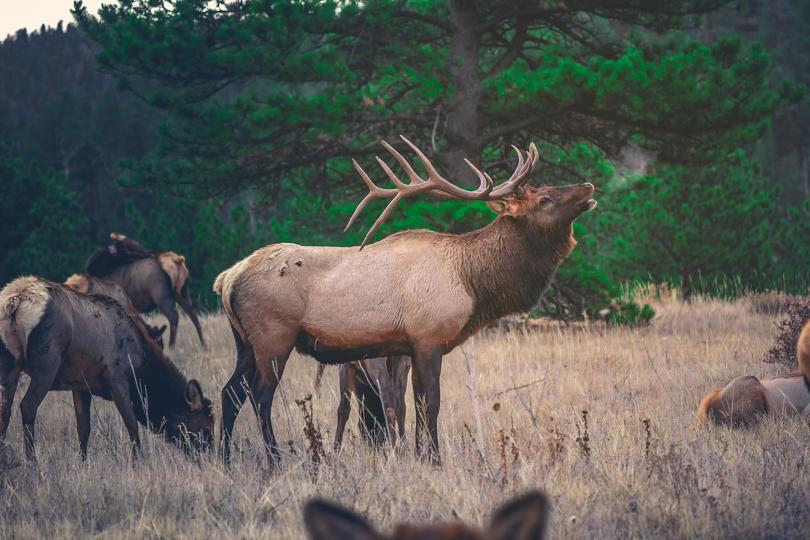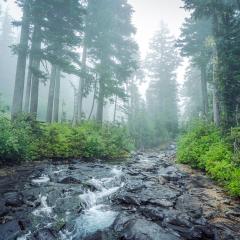Zeller finds recreation sounds contribute to habitat loss
Kathy Zeller led a study exploring the impact of recreation noise on wildlife, finding that “large, vocal groups caused animals to flee and stay away”, as reported by Jackson Hole News and Guide.
The study, published July 2024 with open-access in Current Biology, "designed a field-based experiment to both isolate and quantify the effects of recreation noise on several mammal species and test the effects of different recreation types and group sizes.” They found that “recreation noise alone caused anti-predator responses in wildlife, and as outdoor recreation continues to increase in popularity and geographic extent noise from recreation may result in degraded or indirect wildlife habitat loss.”
Kathy told Jackson Hole News and Guide that she had assumed that different types of recreation would affect wildlife response. But that was not borne out in the results. “What we did find was that really larger group sizes and more vocal groups had the biggest effect,” she said. Kathy was also surprised by a finding that wildlife avoided sites with human noise up to a week after being exposed. Scientists view this as a form of habitat loss, as animals are effectively excluded from those areas. Many different kinds of animals were impacted, with Elk being the most sensitive.


